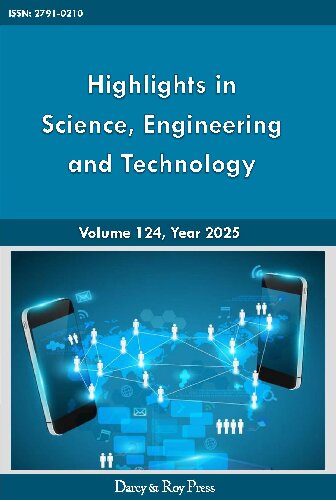Personality Prediction Using RNN Leveraging the Big Five Model and Its Application in Personality-Adaptive Chatbots
DOI:
https://doi.org/10.54097/1rw5wc75Keywords:
Personality prediction; RNNs; Big five personality; Personality-adaptive chatbot.Abstract
This study proposes a method to predict users' personality traits, using Recurrent Neural Networks (RNNs) based on the widely used Big Five personality model, and its application to generative AI-based personality-adaptive chatbots. Text data from essays are used as dataset for the RNN model to predict these personality traits, showcasing the innovativeness of using RNN model to capture certain personality patterns from long, coherent texts instead of short posts on social media. The results show that the model can predict some personality traits effectively, but it has certain difficulties with others, which could be a potential area that may need further improvement. The study also apply the predicted personality traits into generative AI models to examine personalized chatbot responses. The findings demonstrate that after considering the predicted traits from the prediction model, generative AI models can generate more targeted responses according to the given traits. This research underscores the importance of adjusting chatbot responses based on users' personality traits, contributing to more empathetic and user-centered digital interactions.
Downloads
References
[1] Park S., Lee S. Y., Kim S. H. Personality types based on the Myers-Briggs Type Indicator and User Experience Design. Journal of Usability Studies, 2020, 15(3): 123-138.
[2] John O. P., Naumann L. P., Soto C. J. Paradigm Shift to the Big Five Trait Taxonomy: History, Measurement, and Conceptual Issues. Handbook of Personality: Theory and Research, 4th edition, 2021.
[3] Nass C., Moon Y., Fogg B. J., Reeves B., Dryer D. C. Can computer personalities be human personalities? Int J Hum Comput Stud. 1995, 43(2): 223–239. DOI: https://doi.org/10.1006/ijhc.1995.1042
[4] Ahmad H., Asghar M. Z., Khan A. S., Habib A. A systematic literature review of personality trait classifcation from textual content. Open Comput Sci. 2020, 10(1): 175–193. DOI: https://doi.org/10.1515/comp-2020-0188
[5] Ma Y., Nguyen K. L., Xing F. Z., Cambria E. A survey on empathetic dialogue systems. Inf Fusion. 2020, 64: 50–70. DOI: https://doi.org/10.1016/j.inffus.2020.06.011
[6] Kaushal V., Patwardhan M. Emerging trends in personality identifcation using online social networks—a literature survey. ACM, Trans Knowl Discov Data. 2018, 12(2): 1–30. DOI: https://doi.org/10.1145/3070645
[7] Ait Baha, T., El Hajji, M., Es-Saady, Y. et al. The Power of Personalization: A Systematic Review of Personality‑Adaptive Chatbots. SN Computer Science, 2023, 4, 661: 1-25. DOI: https://doi.org/10.1007/s42979-023-02092-6
[8] Schmidt R. M. Recurrent Neural Networks (RNNs): A gentle Introduction and Overview. arXiv: 1912.05911.
[9] Chen Qian, Shuang Li, Jianmin Wang. MM-CPred: A Multi-task Predictive Model for Continuous-Time Event Sequences with Mixture Learning Losses, Lecture Notes in Computer Science, 2021, 1268: 509–525. DOI: https://doi.org/10.1007/978-3-030-73194-6_34
[10] Opper M., Haussler D. Worst Case Prediction over Sequences under Log Loss, the Mathematics of Information Coding, Extraction and Distribution, 1999, 107: 81-90. DOI: https://doi.org/10.1007/978-1-4612-1524-0_6
Downloads
Published
Issue
Section
License
Copyright (c) 2024 Highlights in Science, Engineering and Technology

This work is licensed under a Creative Commons Attribution-NonCommercial 4.0 International License.


















